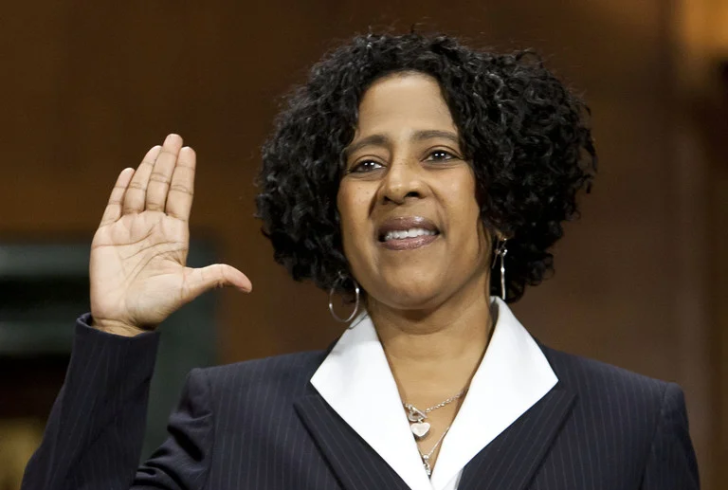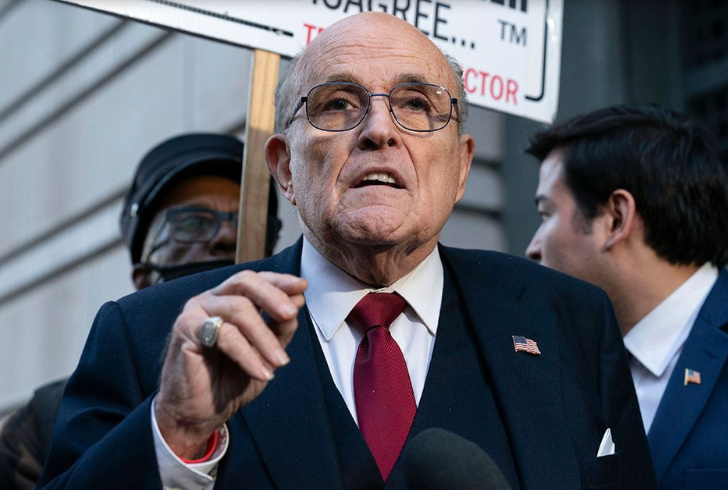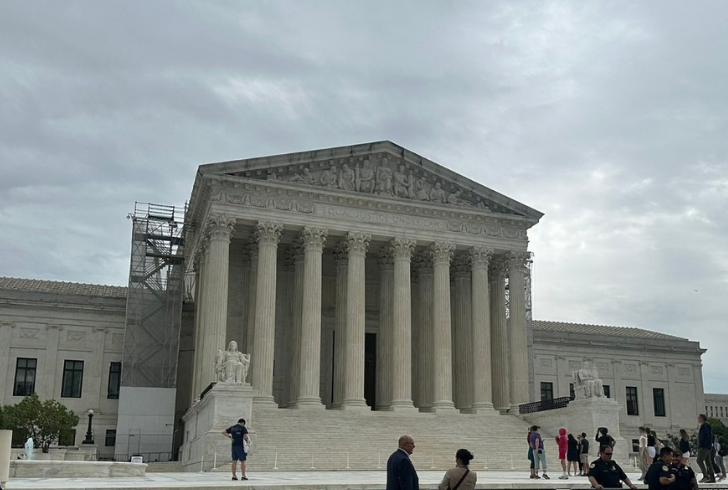The aftermath of the 2020 presidential election has seen U.S. courts and state bar associations actively working to maintain the integrity of the judicial system by sanctioning attorneys who filed baseless lawsuits alleging election fraud. These legal battles have highlighted the judiciary's role in upholding factual evidence and legal standards, demonstrating the consequences of abusing the court system.
Courts Take a Stand Against Baseless Claims
Over the past four years, numerous lawsuits were filed in federal courts challenging the legitimacy of the 2020 presidential election results. These claims, often lacking substantial evidence, were dismissed by federal judges who didn't just reject the cases but also imposed penalties on the attorneys responsible for filing them.
A Notable Case in Michigan

law.com | Linda Parker - Judge of U.S. District Court for the Eastern District of Michigan.
One significant ruling came from Judge Linda Parker of the U.S. District Court for the Eastern District of Michigan. In August 2021, she described a lawsuit filed by nine attorneys as "a historic and profound abuse of the judicial process." Her 110-page opinion outlined various abuses, such as presenting claims unsupported by law and evidence, making factual allegations without proper investigation, and prolonging legal proceedings unnecessarily. Judge Parker imposed severe penalties, including:
- $175,000 in legal costs to be paid to the defendants
- 12 hours of mandatory legal education on pleading standards and election law
- Referrals to the Michigan Attorney Grievance Commission and their respective state disciplinary authorities for potential suspension or disbarment
Despite appeals to the 6th Circuit and the Supreme Court, these penalties remain in effect after three years of litigation.
Legal Actions Across Various States
Other states have seen similar actions to hold attorneys accountable. In Colorado, a federal district court penalized attorneys Ernest Walker and Gary Fielder for filing a $160 billion complaint against 19 defendants related to the 2020 election. The court deemed their claims "fantastical" and "filed in bad faith," ordering them to pay $187,000 in defendants’ attorney fees.
In Arizona, a federal district court sanctioned three attorneys—Andrew Parker, Kurt Olsen, and Alan Dershowitz—over their election lawsuit, citing "false, misleading, and unsupported factual assertions" and lack of a factual or legal basis. They were ordered to pay $122,200 in defendants’ attorney fees.
In a notable instance related to the Donald Trump lawsuit, Florida witnessed a significant legal battle involving the former president himself. In 2022, a federal district court dismissed a 193-page lawsuit filed by Trump against 31 defendants for alleged misinformation during the 2016 election. The court unequivocally stated that the case was baseless, remarking, "This case should never have been brought. … No reasonable lawyer would have filed it." Consequently, Trump and his lead counsel, Alina Habba, were ordered to pay $938,000 in attorney fees. Presently, both are appealing this decision.
Disciplinary Actions and Sanctions

Instagram | boston25 | Rudy Giuliani was immediately suspended from practicing law in New York due to uncontroverted evidence of false and misleading statements to courts.
Beyond the courts, bar associations have also been proactive in disciplining attorneys involved in these baseless lawsuits. Rudy Giuliani, a prominent figure who served as legal counsel to Trump, faced immediate suspension from practicing law in New York after the disciplinary authority found "uncontroverted evidence" that he made false and misleading statements to courts, lawmakers, and the public. The D.C. Bar Association followed suit, recommending his disbarment based on his actions in Pennsylvania, where he filed a lawsuit to disenfranchise hundreds of thousands of voters without any factual basis.
Similarly, Jeffrey Clark, former acting head of the Justice Department's Civil Division, faced disciplinary proceedings from the D.C. Bar for attempting to help Trump overturn the election results, which violated ethical rules.
John Eastman, another Trump campaign attorney, was recommended for disbarment by the California Bar due to his unethical conduct and abusive pleadings. Lin Wood, a Trump campaign attorney in Georgia, faced a mental health evaluation request from the state bar and subsequently announced his retirement from law practice after failing to dismiss the evaluation request in court.
Upholding Judicial Integrity

Instagram | thehtafrica | The penalties, suspensions, and potential disbarments emphasize the crucial need to uphold the integrity of the U.S. judicial system.
The series of penalties, suspensions, and potential disbarments serve as a stern reminder of the importance of maintaining the integrity of the U.S. judicial system. These actions have not only penalized the attorneys involved but have also sent a clear message to the legal community about the consequences of filing unsupported claims. While it remains to be seen if these disciplinary efforts will deter future misconduct, the commitment to upholding facts and legal standards stands firm.
Looking Forward
As the legal community continues to navigate the repercussions of the 2020 election lawsuits, it is evident that the judiciary and bar associations play crucial roles in ensuring that the courts are not misused for baseless claims. This ongoing vigilance is essential in protecting the credibility of the legal system and maintaining public trust.
In the context of the upcoming elections, it will be interesting to see how these precedents influence the actions of attorneys and the handling of election-related lawsuits. The legal community's commitment to factual integrity and ethical standards remains a cornerstone of the U.S. judicial system.
By taking a firm stand against those who attempted to misuse the courts, the judiciary has reinforced the importance of adhering to the rule of law and factual evidence, ensuring that the legal system remains a pillar of justice and fairness in society.